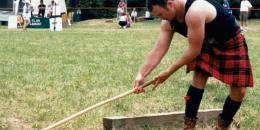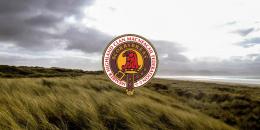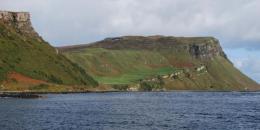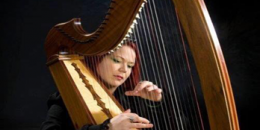This page provides links to some known or public pedigrees that have been provided to the Clan or are public on the web.
CHIEFS OF CLAN MACNICOL
- A concise chart of two lines descending from John the 8th Chief of Clan MacNicol showing the migration pattern of the descendents into parts of Scotland, England, Wales and the United States.
NICOL
The Nicol and Wright families owned by James Maitland. Included in the book were some letters and a tree of the Wright & Innes families. The book was given to Dorothy Mayhew by her uncle, Charles Frank Wright, who probably prepared the Wright Tree: the Nicol family book was written by a 2nd cousin of her husband's (Francis James Maitland) mother. The Nicol and Wright families also join earlier by an earlier marriage.
- Bakers, Bishops and Bushrangers: Emigration to Australia of teh Nicol, Williams, Dunkin and Clancy Families by Robert J. Williams. This book only seems to be available in select National libraries, but is known to contain some good information. Check it out at the NSW State Library or The National Library of Australia
- Matthew Nicol provides a Short History of William Gordan Nicol and the emmigration from Skye to the United States and eventually Orange County, California
- Robyn Bray provides a short pedigree of her ancestor, James Nicol
NICOLSON / NICHOLSON
- The largest collection of Nicolson / Nicholson geneologies is the Rev Canon Nigel Nicholson's Nicolson - Nicholson: A Compilation of Family Trees, available for purchase through The Nicholson Family Library.
- Nicholson of Inverness and Malcolm Nicholson - Skye to Cundletown, NSW - substantial information on the pedigree of Malcolm Nicholson.
- Bill Nicholson provides a page with the descendents of Lodovic Nicolson from the time on the Isle of Skye to the eventual settlement in Canada and the Northeast United States. Bill also has posted a photo with names of a 1934 gathering of Clan Nicholson hosted by George W. Nicholson of Lynn, Massachusetts, USA. There is also a photo of the 1935 gathering on the site.
- The Nicholson Family in America by Newton Harris Nicholson and Louise Nicholson Kelley
COUNTY DIRECTORIES
- 1887 Inverness County Directory - Nicolson's are listed on page 83.
- 1901 Inverness County Directory - Nicolson's are listed on page 110.
ANTIQUARIAN NOTES, HISTORICAL, GENEALOGICAL, AND SOCIAL (SECOND SERIES): INVERNESS-SHIRE PARISH BY PARISH 1897
ANTIQUARIAN NOTES. 285
PARISH OF PORTREE.
MALCOLM NICOLSON, SCORRYBRECK.
The former precarious position of the great body of cottars and dependents in the rural parts of the Highlands and Islands does not admit of doubt. In all parts of the country I have fallen in with deporable cases, and perhaps the greatest oppressions and hardships occurred in the Islands, far away from the protection of the law and the assistance of agents, and entirely under large tacksmen who, however litigious and quarrelsome among themselves, could be relied on to assist, or keep aloof, if the oppressed were below their class and set. Unless the circumstances were exceptional, a poor man sought in vain for protection from the superior or chief tacksman. I am of course referring to the period when men were not of their once value, and all that was looked to was increased rental. The landlord insisted on or was offered a great rise of rent, the incomer only insisting on a free hand and full possession of the land. No wonder that the naturally proud arid independent spirit of the people ended in the emigration of the flower of the old tenants and occupants. Among the larger tenants in Skye at the end of the last century one particularly prominent, and in the eye of the world held in great respect, with a flattering notice at his death, was Mr Malcolm Nicolson of Scorrybreck. I willingly admit and record with pleasure the kindness of many of the large farmers and of their families who nourished and protected the people on their extensive possessions. The kindly actions of such people unfortunately was too often interred with their bones, while evil acts, by getting into the law courts and otherwise, have come down in all their vileness and oppression.
I select one case as a specimen, begun in the harvest of 1790, and lasting until the autumn of 1792, of the mischief even a man of good reputation could do to a poor cottar, illustrating- a cottar's fate who fell under his master's displeasure. Mr Nicolson stated that he had sublet to Angus Nicolson, sub-tenant of Pennifilar, at Whitsunday, 1789, at arent of £3, but under condition of only keeping a certain limited stock ; whereas Angus insisted on keeping over stock, including a vicious mare so unmanageable that it ate thepursuer's hained grass. Further, that Angus allowed part of his buildings to fall into disrepair, particularly a byre, of which he destroyed or used up the timbers, and concluding for substantial damages. Dilatory defences were given in, chiefly that the defender was summoned to Inverness during autumn recess, and to his great loss from compulsory absence in an unusually late harvest, and denying the libel generally. Decree was promptly pronounced by the Sheriff-Substitute against the defender, on the 25th of November, 1790. An appeal was sustained, and after some further procedure, a proof of his averments was given to the pursuer, to be taken on commission by the Sheriff-Substitute of Skye. An objection by the defender that he could not get any agent in Skye to appear for him, also that he did not understand English and was only able to speak in Gaelic, was overruled, and the proof renewed and taken in the defender's absence. The evidence of the four witnesses for the pursuer was meagre, and was so severely exposed by the defender's agent at Inverness that ultimately the Sheriff absolved the defender from the charge connected with the timber of the byre, and while finding that the vicious mare had eaten some hained grass, in respect that this occurred during the winter and spring seasons, and that no evidence had been adduced to instruct the amount of the damage done, restricted the same to five shillings sterling. So, after two years of keen and expensive litigation, Scorrybreck succeeded in his claim to the extent of five shillings. It may be presumed, as Scorrybreck had to pay his own and part of his subtenant's legal expenses, that he, from prudential motives alone, acted thereafter in a kindly spirit to those under him, and to some extent gained his laudatory obituary notice.







